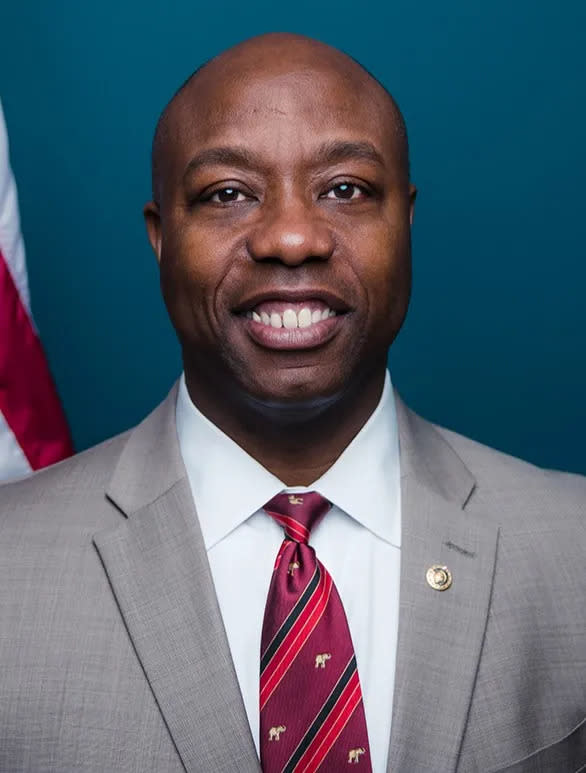
Republican members of the U.S. Senate have introduced new legislation designed to expand the oversight of federal housing programs, make changes to loan officer compensation for the origination of small-dollar mortgages, and create additional counseling requirements for homebuyers.
The Renewing Opportunity in the American Dream (ROAD) to Housing Act is spearheaded by key Republican members of the Senate Banking Committee. These include ranking member Tim Scott (S.C.), as well as Mike Crapo (Idaho), Mike Rounds (S.D.), Bill Hagerty (Tenn.), Cynthia Lummis (Wyo.), Katie Britt (Ala.), Kevin Cramer (N.D.) and Steve Daines (Mont.).
“This legislation is the result of negotiations with stakeholders and follows feedback on [Scott]’s legislative framework, discussion draft, and multiple full committee hearings on legislative solutions to challenges in housing,” Scott’s office said in an announcement of the bill.
Scott’s office also said that the bill aims to provide a “comprehensive” view of federal housing policy by introducing “long-needed” reforms and deemphasizing down payment assistance that has been a rallying cry for Democrats. Instead, the goal is to focus on congressional oversight and changes to LO compensation.


“Families deserve reliable access to a responsibly regulated housing market,” Scott’s office said. “Our federal housing programs require greater oversight from Congress to ensure that they are operating in a safe and sound manner. The ROAD to Housing Act aims to ensure the households who utilize federal housing programs have greater access to tools which enhance financial literacy and improve economic opportunity.”
The bill also contends that housing assistance programs from the U.S. Department of Housing and Urban Development (HUD) do not provide localized assistance. These programs — particularly in relation to federally subsidized properties — “have historically concentrated poverty and limited the economic mobility of residents,” the announcement stated.
“Homeless assistance programs have similarly failed to deliver the results we need, with the total number of homeless individuals at the highest levels ever recorded.”
Republican senators also contend that assistance is prevented from reaching those who need it due to bureaucratic processes tied to federal assistance programs. They argue that “assisted housing programs lack robust oversight,” partially due to lawmakers’ “limited visibility to measure whether they truly assist the low-income families they are intended to support.”
The bill would review regulatory burdens on costs and “delays in the supply of affordable housing,” while also “rethink[ing] how agencies collect and analyze data to help policymakers better understand if programs are working.” It would also expand congressional oversight of HUD’s management of the Mutual Mortgage Insurance (MMI) Fund.
Additional congressional oversight of HUD could stem from consistent Republican critiques that agency leaders — most recently former HUD Secretary Marcia Fudge — have not appeared before Congress to update the legislative branch on HUD’s progress in meeting its goals.
In one of her final official appearances before Congress this past January, Fudge was castigated by Rep. Patrick McHenry (R-N.C.), the chairman of the House Financial Services Committee, for her lack of appearances before Congress.
In a message to its members this week, the Mortgage Bankers Association (MBA) said it is engaged with Scott’s office on the bill, and any path forward will be determined by the partisan makeup of the Senate in 2025.
“The bill, long in the works, is intended to be a marker for Sen. Scott’s initial engagement on housing policy should Republicans win a Senate majority in November – and should he, as expected, become the Chair of the Senate Banking Committee,” the MBA stated. “Given that the bill has been introduced with no Democratic co-sponsors, any legislation considered in the 119th Congress on housing policy would involve negotiations, changes, and additional policy provisions.
The bill marks a relatively substantive contribution by Republicans to the topic of housing during the 2024 election cycle. While the presidential campaigns of both President Joe Biden and Vice President Kamala Harris have made housing issues a key priority for the Democratic platform, Republican nominee Donald Trump has tended to tie housing to the larger issue of immigration when electing to comment on housing at all.
Democratic lawmakers have also been active this week with respect to housing legislation. Rep. Alexandria Ocasio-Cortez (N.Y.) and Sen. Tina Smith (Minn.) on Wednesday introduced their own bill that has a stated goal of building and preserving affordable housing, including through a repeal of the Faircloth Amendment.
They also seek to create a new national housing development authority to provide an “alternative to a market dominated by corporations and investors with deep pockets,” according to a description of the bill provided to HousingWire. Like Scott’s bill, however, it lacks bipartisan support, according to initially-released details.
From: Yahoo.com
Real Estate News








